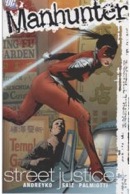In his [lengthy essay about e-books](http://arstechnica.com/gadgets/news/2009/02/the-once-and-future-e-book.ars), John Siracusa makes a good point about how new technologies rarely completely replace what came before them.
> Take all of your arguments against the inevitability of e-books and substitute the word “horse” for “book” and the word “car” for “e-book.” (…)
> “Books will never go away.” True! Horses have not gone away either.
> “Books have advantages over e-books that will never be overcome.” True! Horses can travel over rough terrain that no car can navigate. Paved roads don’t go everywhere, nor should they.
> “Books provide sensory/sentimental/sensual experiences that e-books can’t match.” True! Cars just can’t match the experience of caring for and riding a horse: the smells, the textures, the sensations, the companionship with another living being.
> Lather, rinse, repeat. Did you ride a horse to work today? I didn’t. I’m sure plenty of people swore they would never ride in or operate a “horseless carriage” — and they never did! And then they died.
For the record, I love my Kindle while acknowledging its many shortcomings. I’m looking forward to the next version, and whatever Apple finally releases.
(Kind acknowledgements [Daring Fireball](http://daringfireball.net).)
 ](http://www.amazon.com/gp/product/0307346617?ie=UTF8&tag=johnaugustcom-20&linkCode=as2&camp=1789&creative=9325&creativeASIN=0307346617)As I’ve [mentioned before](http://johnaugust.com/archives/2007/at-the-gates-of-paramount), screenwriters spend an inordinate amount of time thinking and talking about zombie invasions, so it was high time I read Max Brooks’s
](http://www.amazon.com/gp/product/0307346617?ie=UTF8&tag=johnaugustcom-20&linkCode=as2&camp=1789&creative=9325&creativeASIN=0307346617)As I’ve [mentioned before](http://johnaugust.com/archives/2007/at-the-gates-of-paramount), screenwriters spend an inordinate amount of time thinking and talking about zombie invasions, so it was high time I read Max Brooks’s  ](http://www.amazon.com/gp/product/159448306X?ie=UTF8&tag=johnaugustcom-20&linkCode=as2&camp=1789&creative=9325&creativeASIN=159448306X)Sloane Crosley’s
](http://www.amazon.com/gp/product/159448306X?ie=UTF8&tag=johnaugustcom-20&linkCode=as2&camp=1789&creative=9325&creativeASIN=159448306X)Sloane Crosley’s  ](http://www.amazon.com/gp/product/1933648449?ie=UTF8&tag=johnaugustcom-20&linkCode=as2&camp=1789&creative=9325&creativeASIN=1933648449)The last book of my trip was Derek Haas’s
](http://www.amazon.com/gp/product/1933648449?ie=UTF8&tag=johnaugustcom-20&linkCode=as2&camp=1789&creative=9325&creativeASIN=1933648449)The last book of my trip was Derek Haas’s 
